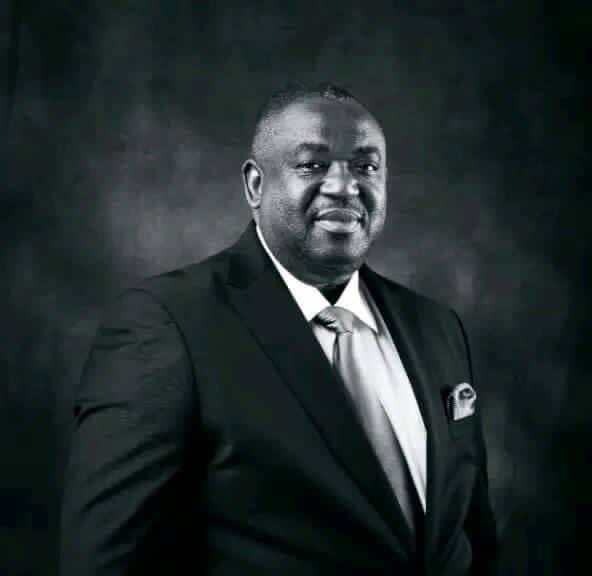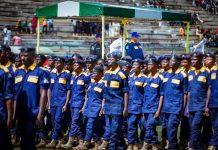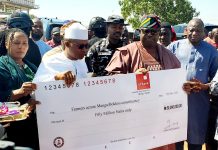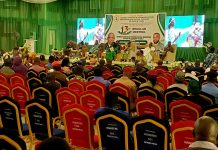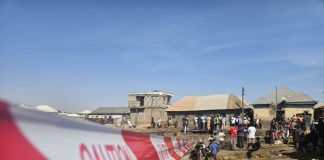By Mark Longyen
The Supreme Court has upheld the election of Gov Caleb Mutfwang of Plateau State, and killed the governorship dream of his All Progressives Congress (APC) challenger, Dr Nentawe Goshwe, who was declared governor-elect earlier by the Court of Appeal.
Periscope International reports that the Court of Appeal had in the controversial judgment on November 19, 2023, sacked Mutfwang and declared Nentawe, the APC’s 2023 governorship election candidate, as the winner.
Mutfwang, a lawyer, who was earlier declared winner of the election by the Independent National Electoral Commission (INEC), as well as the Governorship Election Petition Tribunal, had, however, faulted the Court of Appeal’s judgment, and approached the Supreme Court to restore his stolen mandate.
Delivering judgment read by Justice Emmanuel Agim, on Friday in Abuja, however, a five-member panel of the apex court, unanimously reversed the decision of the Court of Appeal, which it described as “perverse, null and void.”
The apex court held that the issue of PDP’s primary election, which produced Mutfwang was outside the jurisdiction of the lower court, stressing that the validity of nomination and sponsorship of a party’s candidate was not a valid ground to void an election.
According to the Supreme Court, the Court of Appeal lacks the jurisdiction to entertain the issue of sponsorship of a candidate of a political party, adding that the APC petitioners were not PDP members, hence, they had no business meddling in the latter’s affairs and had no locus standi to challenge the party’s primary election.
The Court also noted that, apart from the Tribunal and Court of Appeal’s lacking of jurisdiction to entertain the matter, the issue of sponsorship had elapsed long ago, making it an academic exercise.
Justice Agim further stressed that the issue of primary election was an internal matter of political parties, in which both the Tribunal and Court of Appeal lacked jurisdiction to poke-nose.
On the issue of whether the order of the Plateau State High Court can affect the PDP National Executive Committee (NEC), the apex court held that the appellate court was wrong in holding that the order affected the NEC.
Justice Agim also pointed out that, contrary to the claim of the petitioners and the judgment of the Court of Appeal, the order of the Plateau State High Court was not disobeyed by the PDP, adding that evidence showed that a fresh and genuine Congress was actually conducted.
The erudite Judge warned the legal profession to wake up or else it would render itself irrelevant to the society.
Justice Agim said: “Can the tribunal and the Court of Appeal determine the validity of the nomination of a candidate?
“The order of the High Court of Plateau State had nothing to do with power of NEC of the PDP; it is a jurisdictional matter!
“For this reason, this appeal is allowed. The judgement of the Court of Appeal is set aside, inclusive of the orders made therein.
“The judgement of the election tribunal is restored. The election of the governor is further restored.
“The legal profession must wake up or else it will render itself irrelevant to the society.”
Justice John Okoro, the Presiding Justice of the Supreme Court Panel, aligned with the lead judgment, and expressed dismay for the fact that a lot of people have suffered because of the wrongful judgments of the Plateau Election Court of Appeal Panel.
According to him, the Court of Appeal’s handling of Plateau State’s electoral disputes is a manifestly monumental miscarriage and travesty of justice by its sacking of all lawmakers, who clearly won elections on the platform of the PDP.
He said: “My only worry is that a lot of people have suffered as a result of the Court of Appeal’s decision. It was absolutely wrong. The appeal is allowed.”
Also aligning with the lead judgment, Justice Helen Ogunwumiju, another panel member, berated the Court of Appeal for going into the issue of nomination and sponsorship, despite several decisions of the apex court to the effect that another political party cannot challenge the primary election of another.
Justice Uwani Abba-Aji, another member of the Supreme Court’s Panel that delivered the landmark judgment, also concurred with the lead judgement.
It would be recalled that Mutfwang scored 525,299 votes to beat Nentawe, who garnered 481,370 votes during the 18 March governorship poll in Plateau State.
The governor’s election was later upheld by the Plateau State Governorship Election Petitions Tribunal in Jos, the state capital.
The Supreme Court’s decision has now restored confidence in the judiciary among the citizens, especially after the controversial judgments of the Court of Appeal, which had sweepingly nullified the election of all PDP lawmakers from Plateau, right from the House of Assembly to the National Assembly on the curious ground of “lack of structure.”
With this landmark judgment, which is consistent with the Supreme Court’s earlier judgments on the matter (that issues of nominations are internal affairs of political parties), the fate of Plateau members of the National Assembly and the House of Assembly from the PDP, who were wrongfully sacked by the Court of Appeal on the same ground as that of the Plateau State Governor, hangs in the balance.
This is because, based on the provisions of Section 6 of Constitution, and the Supreme Court, being a court of ultimate policy, the PDP and the sacked members of the National Assembly and the House of Assembly may approach the Supreme Court based on the fact that the Court of Appeal arrived at its decisions in error.
To this end, the Supreme Court, as a policy Court, may apply the WRIT OF CERTIORARI by reviewing all the wrongfully delivered judgments of the Court of Appeal, investigate, expose and punish culprits to ensure judicial accountability and serve as a deterrent to future abuses.
The WRIT OF CERTIORARI is a formal order issued by a higher court to a lower court, instructing the court below to submit the entire record of a particular case for review. This legal procedure enables the higher court to scrutinize and potentially overturn the lower court’s decision, to ensure uniformity and consistency in the interpretation and application of the law.
Given the latest development, the Supreme Court may assume jurisdiction and review all the erroneously decided cases of the Court of Appeal, based on Section 6 of the Constitution, if approached by the now illegally sacked lawmakers for a review of the Appeal Court’s erroneous decisions.
Alternatively, the Court of Appeal could decide to review its erroneous decisions in these cases and set aside the earlier judgments, if the affected parties approach it for judicial review.
A judicial precedent to that is the case of former Sokoto Gov Magatakarda Wammako, whose election was erroneously nullified by the Court of Appeal under Justice Ayo Salami but the Supreme Court later assumed jurisdiction, reviewed the case and upheld the Governor’s election.
CREDIT: PERISCOPE INTERNATIONAL

